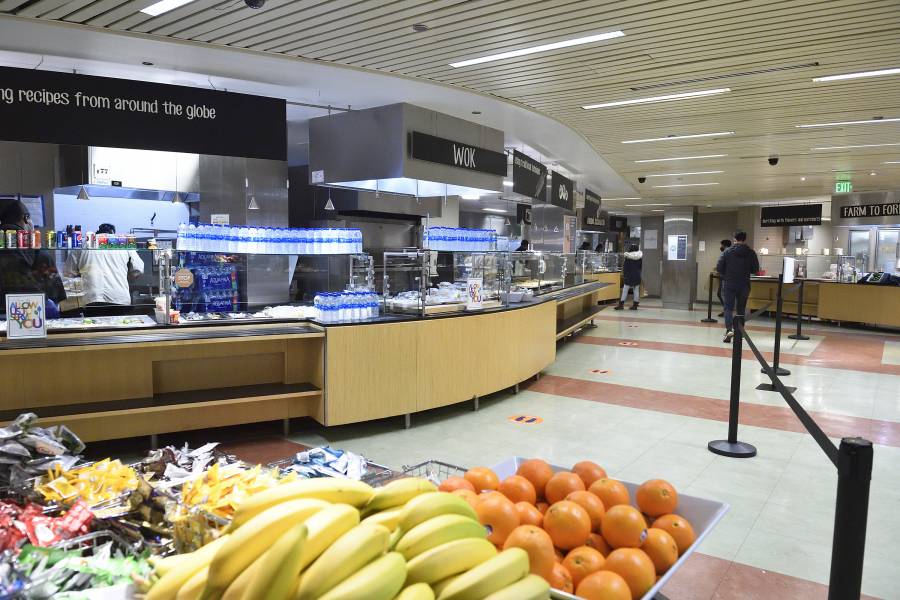Dining halls at Johns Hopkins University's Homewood campus and Peabody Institute will shift to a self-operated model beginning next year, a change that will give the university greater flexibility and oversight of the campus dining experience.
Dining agreements with the current dining vendor, Bon Appetit Management Company, began in 2013 and will continue until July 2022. Through Bon Appetit, university campus dining locations provide students with made-from-scratch meal options that prioritize seasonal foods and locally-grown produce. The university's new model will build on these commitments to sustainable dining and will seek input from Hopkins students, faculty, and staff to shape the new campus dining options and practices through listening sessions, meetings with stakeholder groups, and comment cards.
Among the projected changes are renovations to dining facilities, operations considerations that more fully integrate campus cafés with student dining plans, and streamlining meal plans across the Homewood and Peabody campuses. The program will include new foodservice spaces in the remodeled O'Connor Recreation Center and the newly built SNF Agora Institute and Student Center facilities. The university's operations model will also seek to further enhance relationships with small, local, and minority-owned vendors as part of Johns Hopkins' economic inclusion initiative, HopkinsLocal.
Bon Appetit employees who are current hourly dining staff will be offered comparable positions as university staff and will help shape the new campus dining experience.
"Moving to a self-operated model will offer more dining options and delicious food, bring our dedicated food service workers closer into the Hopkins community as official JHU employees, and help us build new relationships with small, local and minority-owned businesses as part of our economic inclusion commitments," says Andrew Wilson, dean of academic and student services.
"We are excited to take another step forward in improving our campus dining program," says Alanna Shanahan, vice provost for student affairs. "With our transition to a self-operated program we have the opportunity to prioritize the student experience in our programming. We hope to both enhance our residential and retail offerings while greatly increasing the flexibly provided to our students via the meal plan."
The change represents an exciting time for the university community to unite around sustainable and ethical foodservice practices, says Ian Magowan, senior manager of dining programs for Homewood Student Affairs.
"The biggest difference students will see is a better value for the cost of their meal plans," Magowan says. "Students will get back twofold the philosophical value—in our sustainable practices and commitments to our employees—and the pure dollar value in how the food is sourced, prepared, and served."
Posted in University News, Student Life
Tagged homewood campus, dining, peabody institute, student experience








